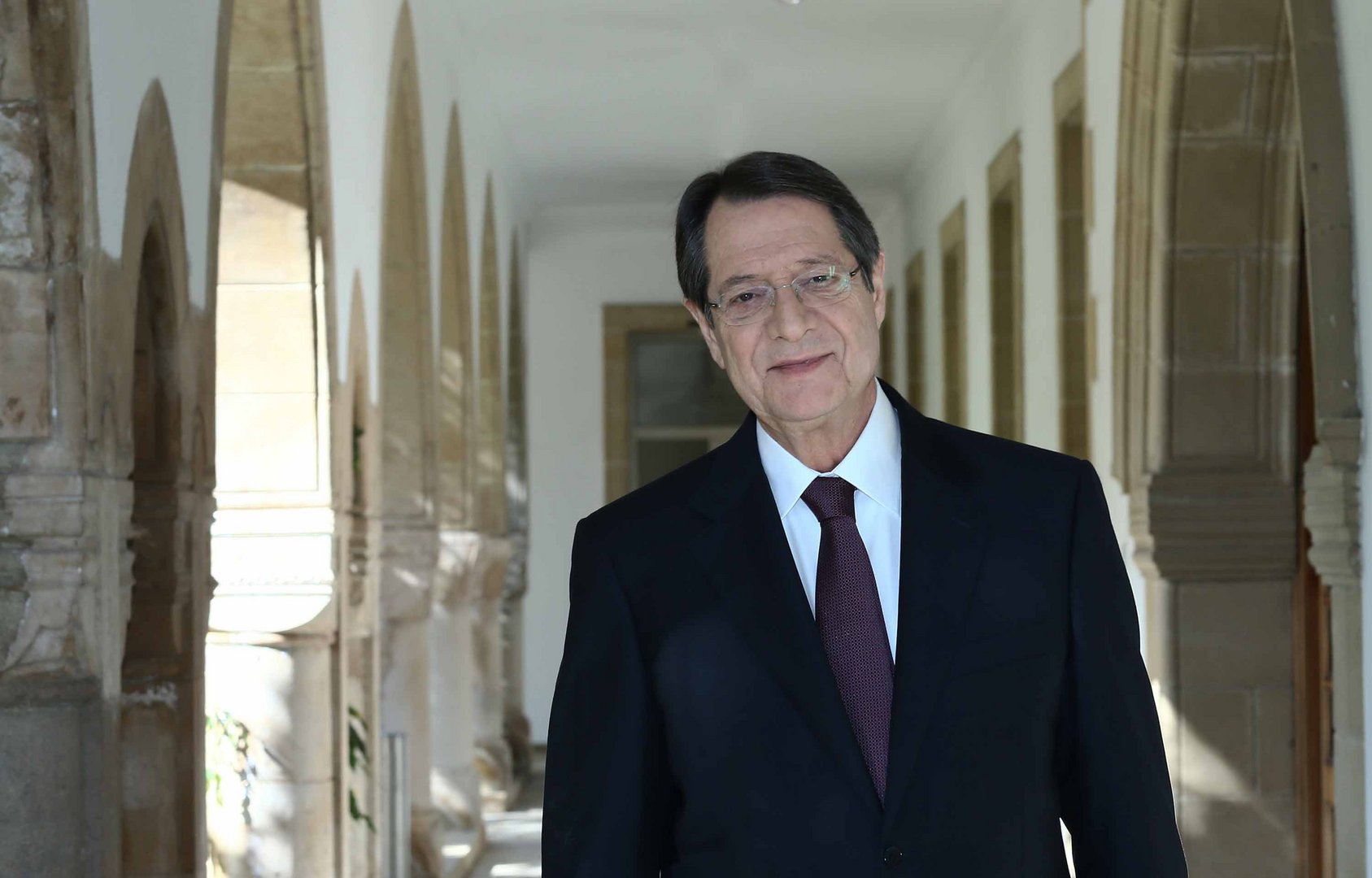President Nicos Anastasiades said on Saturday he is leaving the post carrying the weight of not having solved the Cyprus issue, which he said had been his goal.
In an interview with the Greek newspaper Ta Nea, the president said: “I carry a weight, because I am completing my term as president, without having achieved the most important goal I had set, the solution of the Cyprus problem.”
However, he added that his conscience is clear when it comes to how he governed.
“We received a bankrupt country, and we are turning over an economically prosperous country with a growth rate of 6 per cent this year,” he said.
He added that unemployment is under 7 per cent, and important reforms have been made in a variety of sectors.
“Therefore, whoever is elected, I hope that he will continue with the same strict fiscal policy and have sensitivities to social policy,” he said.
Regarding the Cyprus problem, Anastasiades said that he made “superhuman efforts” and managed to record significant progress with the then leader of the Turkish Cypriot community, Mustafa Akinci, and added that Ankara’s interventions and its insistence on continuing the guarantees, the permanent presence of the Turkish army, were positions which unfortunately led to the failure of the last attempt made at Crans-Montana.
Responding to a question about the criticism he receives from the opposition over his handling of the Cyprus issue, Anastasiades said that this is due to a narrative adopted by some as it was put forward by Espen Barth Eide, the UN secretary general’s envoy at the time.
He said that the later revelation of the minutes of the final meeting, showed that he was not the one to leave the negotiation table.
He added: “For the sake of history, just so you know, the secretary general had devoted very few hours to such a critical problem. The day after the dinner, i.e. 7/6/2017 he was meant to be in Hamburg at the G20 Summit, and therefore as one would expect, he should instead of interrupting and postponing, asked for a continuation of the dialogue, we had come so close.”
Commenting further, he said that Turkey systematically tried to avoid any new dialogue, and that after Crans-Montana he made innumerable efforts to restart the dialogue.
“Unfortunately, however, in order to achieve Turkey’s strategic goal, as it has been drawn up since 1956, i.e. that it should at least control a part of Cyprus, or to control the new state of affairs, it did not allow us to achieve the desired reunification of our homeland on the basis of bizonal, bicommunal federation,” he said.
The president said that he is concerned about the facts that are taking shape today and especially about what is happening in Varosha.
He added that Turkey’s efforts are currently focused on the recognition of the north as it wishes to have dependent recognised states, but gradually the occupied areas will be integrated under the full control exercised by Ankara, either through Turkish Vice President Fuat Oktay, who oversees projects and policies, or through the ambassador of Turkey, who has the first say on any decision by the Turkish Cypriot leadership.
Commenting on the upcoming elections, Anastasiades said that Averof Neophytou and Andreas Mavoryiannis do not have such different opinions on certain policies, or the Cyprus problem.
He said that he is concerned about Nikos Christodoulides’ candidacy, as the parties that are supporting him have such widely different views, leading him to wonder how they will be able to not dissolve the government when it is time to make decisions on the Cyprus problem.
Regarding the elections for archbishop, Anastasiades said that the government is monitoring the developments from a distance.
“I think there should be a separation between state and church. In the sense that the opinions of the ‘national church’ are respected – I am speaking historically – but we are now talking about times where opinions are both permissible and desirable, but the influence and interventions are completely unacceptable,” he said.







Click here to change your cookie preferences